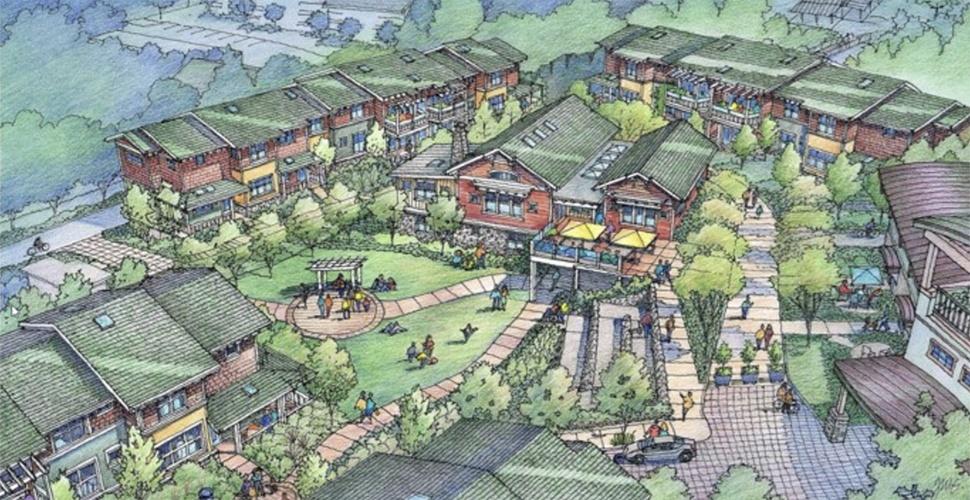The Benefits of Neuro-Inclusive Cohousing for Individuals with Intellectual Developmental Disabilities and Other Marginalized Groups in Southeastern Pennsylvania: A Focus on Bucks County
Embracing Neurodiversity in Cohousing Communities
In recent years, there has been a growing awareness of the importance of neuro-inclusive cohousing communities for individuals with intellectual developmental disabilities (IDDs), seniors, veterans, and other marginalized groups.
These communities can offer residents the opportunity to live independently while benefiting from a strong support network. In this article, we will delve into the benefits of neuro-inclusive cohousing in Southeastern Pennsylvania, with a specific focus on Bucks County.
A Closer Look at Southeastern Pennsylvania and Bucks County
Southeastern Pennsylvania is a diverse region with a population of over 4 million people. Bucks County, one of the four counties in this region, is home to approximately 630,000 residents. Within this county, there are several urban, suburban, and rural communities, providing a range of living environments for individuals with IDDs, seniors, and veterans.
The Power of Support: Neuro-Inclusive Cohousing Benefits
There are numerous benefits to neuro-inclusive cohousing for individuals with IDDs and other marginalized groups. Let's explore some of these advantages in more detail:
- Social Inclusion: Neuro-inclusive cohousing fosters a sense of belonging and acceptance for residents with diverse needs. This type of community enables individuals to participate in social activities, build friendships, and develop meaningful connections with their neighbors.
- Independent Living: By offering a supportive environment, neuro-inclusive cohousing allows residents to live independently, while also providing the necessary resources and assistance to maintain their quality of life.
- Safety and Security: In a neuro-inclusive cohousing community, residents can feel secure knowing that their neighbors are aware of their unique needs and are willing to lend a helping hand when needed.
- Skill Development: Through communal activities and workshops, residents can learn new skills, improve their existing abilities, and gain confidence in their daily lives.
- Mental Health Support: A strong support network in neuro-inclusive cohousing communities can help alleviate feelings of isolation, loneliness, and stress, promoting better mental health for residents.
- Cost-Effective Living: By sharing resources and facilities, such as kitchens, laundry rooms, and recreational spaces, neuro-inclusive cohousing communities can offer more affordable living options for individuals on fixed incomes or limited budgets.
Neuro-Inclusive Cohousing in Bucks County: The Path Forward
With the growing need for supportive housing options for individuals with IDDs and other marginalized groups, Bucks County has the potential to become a leader in neuro-inclusive cohousing. To do this, local government agencies, non-profit organizations, and community members must work together to develop innovative housing solutions that meet the unique needs of these populations.
Some potential initiatives to expand neuro-inclusive cohousing in Bucks County include:
- Education and Awareness Campaigns: By educating the general public about the benefits of neuro-inclusive cohousing, we can foster greater acceptance and understanding within the community.
- Incentivizing Developers: Offering financial incentives or tax breaks to developers who build neuro-inclusive cohousing communities can encourage more projects of this type in Bucks County.
- Collaboration with Local Organizations: Partnering with local organizations that serve individuals with IDDs, seniors, and veterans can help identify housing needs and develop appropriate solutions.
- Community Engagement: Engaging community members in the planning and implementation of neuro-inclusive cohousing projects can help ensure that these developments are tailored to the needs of the local community.
Demographics and Statistics: Understanding the Need for Neuro-Inclusive Cohousing in Bucks County
To better comprehend the need for neuro-inclusive cohousing in Bucks County, it's essential to examine the demographics and statistics surrounding individuals with IDDs, seniors, and veterans within the area.
Individuals with Intellectual Developmental Disabilities (IDDs): In the United States, approximately 6.5 million people have an intellectual developmental disability, accounting for 2% of the population. As a percentage of Bucks County's population, this would equate to roughly 12,600 individuals who could potentially benefit from neuro-inclusive cohousing.
- Seniors: According to the U.S. Census Bureau, 19.3% of Bucks County residents are 65 years of age or older. This demographic is often at higher risk for social isolation and could benefit from the supportive environment provided by neuro-inclusive cohousing.
- Veterans: There are approximately 27,000 veterans residing in Bucks County, many of whom face unique challenges related to their military service. Neuro-inclusive cohousing communities can offer these veterans the support they need to transition back to civilian life and maintain their independence.
Building a Brighter Future Through Neuro-Inclusive Cohousing in Bucks County
As our understanding of neurodiversity continues to grow, so does the need for innovative housing solutions like neuro-inclusive cohousing. By promoting the development of such communities in Bucks County, we can help ensure that individuals with intellectual developmental disabilities, seniors, and veterans have access to the resources and support they need to live fulfilling, independent lives. With a collaborative effort from local organizations, government agencies, and community members, Bucks County can pave the way for a more inclusive and supportive future for all.
A Call to Action: Accelerating the Creation of Neuro-Inclusive Cohousing in Bucks County through Financial Support, Grant Funding, and Land Donations
To accelerate the development of neuro-inclusive cohousing communities in Bucks County, a concerted effort must be made by local government, non-profit organizations, and private citizens. This section of the article serves as a Call to Action (CTA) for the provision of financial support, grant funding, and donations of land or real estate to help make neuro-inclusive cohousing a reality in the region.
Financial Support: The Backbone of Neuro-Inclusive Cohousing Projects
- Financial support is crucial for the successful development and implementation of neuro-inclusive cohousing projects. Local government, businesses, and private citizens are urged to contribute to the cause, ensuring that these communities become accessible to those who need them the most. Contributions can be made in various forms, such as direct donations, low-interest loans, or by offering financial support to non-profit organizations working on these projects.
Grant Funding: Unleashing the Potential of Neuro-Inclusive Cohousing
- Grant funding from federal, state, and local sources is essential for the advancement of neuro-inclusive cohousing in Bucks County. Organizations and individuals working on these projects should actively seek grant opportunities and apply for funds to help cover development costs, program implementation, and ongoing support services. Local government agencies can also facilitate the grant process by providing resources and guidance to those seeking funding.
Donation of Land and Real Estate: Laying the Groundwork for Inclusive Communities
- The availability of suitable land and real estate is a critical factor in the development of neuro-inclusive cohousing communities. Private citizens, businesses, and local government can play a vital role in making these projects a reality by donating land or real estate for the construction of neuro-inclusive cohousing communities.
Local government agencies can lead the way by identifying suitable county-owned land that can be allocated for these projects. In addition, tax incentives or other benefits can be offered to private landowners who choose to donate their property for the creation of neuro-inclusive cohousing.
Conclusion: Working Together to Bring Neuro-Inclusive Cohousing to Bucks County
The development of neuro-inclusive cohousing communities in Bucks County requires a united effort from local government, non-profit organizations, and private citizens. By providing financial support, securing grant funding, and donating land or real estate, we can help to create a more inclusive, supportive, and vibrant community for individuals with intellectual developmental disabilities, seniors, and veterans.
Together, we can make a difference, paving the way for a brighter future for all residents of Bucks County.
Jim Ricardson, Co-Founder, Front Porch Cohousing
https://frontporchcohousing.org



